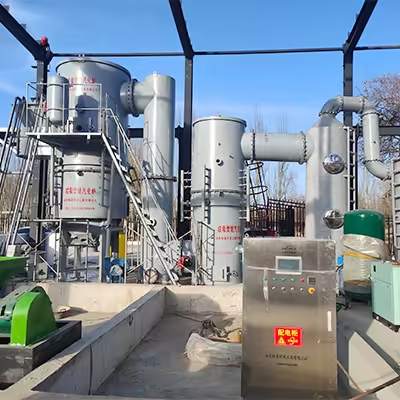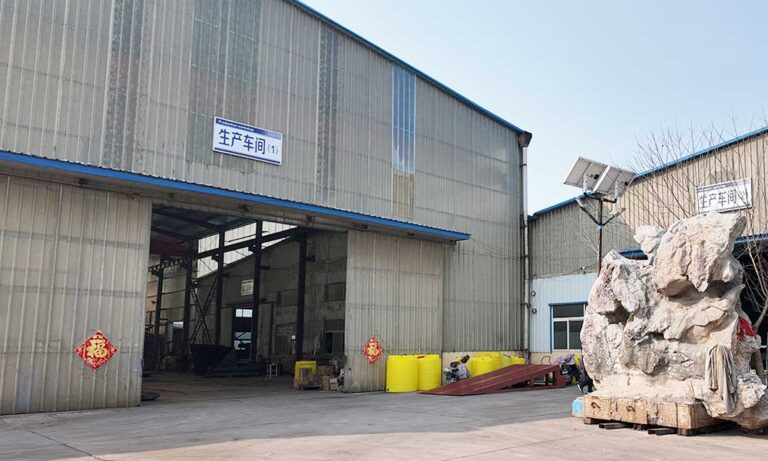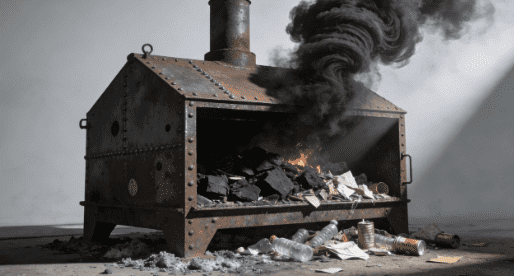Welcome to My Blog! 🌟
I’m so glad you’re here! Before we jump into the exciting content, I’d love for you to connect with me on my social media platforms. It’s where I share extra insights, interact with our amazing community, and post regular updates. Here’s how you can join the conversation:
📘 Facebook: Follow me on Facebook for more updates
Now, let’s dive into the journey ahead. I hope you find everything here both engaging and valuable. Together, let’s explore, learn, and grow! 🚀
Table of Contents
Introduction
In today’s world, waste management has become an essential aspect of running a successful business. Industrial incinerators have emerged as one of the most effective solutions for waste disposal, offering several benefits for businesses across various industries. The proper use of an industrial incinerator ensures that waste is disposed of safely, efficiently, and in compliance with environmental regulations. However, choosing the right industrial incinerator for your business can be a daunting task. In this blog, we’ll explore why it’s critical to make the right choice and the factors to consider when selecting an industrial incinerator for your business.
Understanding the Importance of an Industrial Incinerator
An industrial incinerator is a high-temperature furnace specifically designed to burn and dispose of waste materials by converting them into ash. This process not only reduces the volume of waste that would otherwise need to be landfilled but also eliminates harmful contaminants, pathogens, and pollutants that could otherwise harm the environment. By facilitating the safe disposal of waste, these systems play a vital role in maintaining cleaner and safer industrial environments.
Industries that deal with large volumes of waste, such as manufacturing plants, hospitals, chemical facilities, and research labs, rely on such waste disposal systems for effective waste management. These incinerators provide a controlled, safe environment for waste disposal, preventing potential environmental risks from improper waste handling. By utilizing advanced systems, industries ensure that the waste is disposed of in compliance with environmental laws and regulations.
Key Factors to Consider When Choosing an Industrial Incinerator

1. Type of Waste to be Incinerated
The nature of the waste generated by your business is one of the most crucial factors in selecting the appropriate waste disposal system. Different waste types require different kinds of incineration technologies, with each system designed for specific waste streams. For example, hazardous waste, medical waste, or industrial by-products each demand incinerators with specialized features, including advanced filtration and emission control systems.
When assessing your waste needs, it’s important to consider the following types of disposal systems:
- Medical Waste Systems: Designed to safely handle biohazardous materials such as needles, body fluids, and contaminated equipment.
- Hazardous Waste Systems: Suitable for industrial chemicals and other toxic materials that need to be carefully controlled during the incineration process.
- General Industrial Waste Systems: These are versatile machines capable of handling a broad range of waste types, from paper and plastic to metals and textiles.
Ensuring that your incineration system matches the characteristics of your waste is essential to maintain safety, efficiency, and regulatory compliance.
2. Environmental Compliance and Regulations
One of the most important considerations in choosing a waste disposal system is adherence to local and international environmental regulations. Incineration systems must meet stringent environmental standards to reduce air pollution, limit toxic emissions, and ensure the waste disposal process does not negatively impact the surrounding environment.
The incinerator must be equipped with appropriate pollution control devices such as scrubbers, filters, and other emissions reduction technologies. Failure to comply with environmental laws can lead to significant legal consequences, including fines and shutdowns. Therefore, ensuring that the incineration system you choose complies with all relevant regulations is critical not just for legal reasons but also for maintaining a responsible, environmentally friendly business.
3. Capacity and Efficiency
Selecting an incineration system that matches the volume of waste your business generates is crucial for efficiency. Overloading a disposal system can lead to delays, higher energy consumption, and increased operational costs. Therefore, it is important to choose a system with a capacity that aligns with your waste generation levels.
Capacity also plays a role in ensuring that the system runs efficiently without overworking the machinery, which could lead to wear and tear, higher maintenance costs, and longer downtimes. Furthermore, focusing on energy-efficient systems can help reduce operational costs by lowering fuel and energy consumption. A system with a properly matched capacity will also help maintain a steady flow of waste disposal, avoiding any bottlenecks in the production process.
4. Maintenance and Operating Costs
Every industrial machine, including incineration systems, requires regular maintenance to keep them running smoothly. This includes periodic cleaning, system inspections, part replacements, and ensuring safety mechanisms are functioning properly. It is crucial to factor in not only the initial cost of the incinerator but also the long-term maintenance and operating expenses.
Some systems, while more expensive initially, can be more cost-effective in the long run due to their durability, lower maintenance requirements, and overall reliability. Before purchasing, consider how easy it is to source spare parts and the level of after-sales support provided by the manufacturer. A reliable, low-maintenance system will save your business money over time and ensure a smooth operation.
5.Technology and Automation
Modern incineration systems often incorporate advanced technology, such as automation and remote monitoring, to improve efficiency and control. These systems can offer features like automated temperature regulation, fuel consumption monitoring, and real-time alerts for any operational issues.
Automation helps reduce human error and ensures more consistent performance. Additionally, systems with remote monitoring capabilities allow operators to keep track of operations from a distance, offering a more convenient and efficient way to manage the disposal process. By integrating the latest technology into the incineration system, businesses can not only improve safety and compliance but also optimize their waste management procedures.
Evaluating Your Needs Before Purchasing an Incineration System
Choosing the right waste disposal system requires a comprehensive understanding of your business’s specific needs. By assessing factors such as the type and volume of waste, regulatory requirements, system efficiency, and ongoing costs, you can ensure that you select an incinerator that will meet your business’s long-term needs. Take the time to research different models, compare their features, and consult with industry experts to make an informed decision.
Features to Look for in an Industrial Incinerator
To help you choose the right industrial incinerator, here is a table summarizing the key features that should be considered:
| Feature | Importance | Explanation |
|---|---|---|
| Waste Type Compatibility | Ensures proper incineration of specific waste types | Different incinerators are designed to handle different waste materials, such as medical, hazardous, or industrial waste. |
| Emission Control Systems | Meets environmental regulations | Filters, scrubbers, and other technologies to reduce harmful emissions during incineration. |
| Capacity | Matches business waste production levels | Choose an incinerator with the appropriate waste disposal capacity for your business needs. |
| Energy Efficiency | Reduces operational costs | Look for models that consume less fuel and provide better energy efficiency. |
| Durability and Build Quality | Ensures longevity and minimizes downtime | Industrial-grade materials and robust construction ensure the incinerator lasts longer with minimal repairs. |
| Automated Features | Simplifies operation and reduces labor needs | Look for systems with automated start/stop functions, self-cleaning, and remote monitoring features. |
Conclusion
Choosing the right industrial incinerator is critical to your business’s waste management strategy. By carefully considering factors like the type of waste produced, environmental regulations, capacity needs, and long-term costs, you can select an incinerator that will serve your business efficiently for years. With the right equipment in place, you’ll ensure compliance, reduce environmental impact, and make your waste disposal process more efficient and cost-effective.
FAQ
What are the environmental benefits of using an industrial incinerator?
Using an industrial incinerator significantly reduces the volume of waste, which in turn lowers landfill waste and the associated environmental burden. It also helps eliminate hazardous materials and pollutants, reducing environmental risks.
How do I determine the right capacity for my industrial incinerator?
The correct capacity depends on the amount of waste your business produces. Assess your waste generation rates and match the incinerator’s capacity to ensure efficient disposal without overloading the system.
How much does an industrial incinerator cost?
The cost of an industrial incinerator varies depending on the size, features, and type of waste it handles. Typically, high-capacity and feature-rich models are more expensive, but they can save you money over time with lower maintenance and fuel costs.
What maintenance is required for an industrial incinerator?
Maintenance typically includes cleaning, checking filters, inspecting combustion chambers, replacing worn-out components, and ensuring that all safety and emission systems are functioning correctly.






